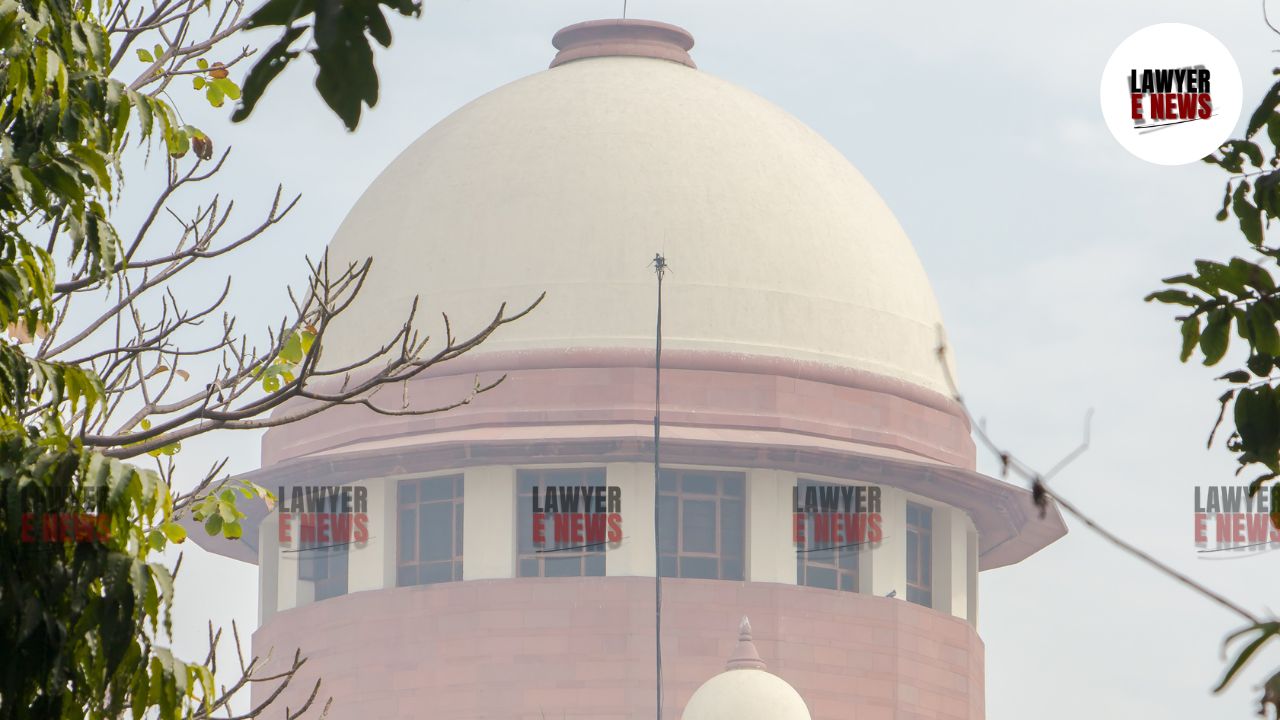-
by Admin
15 February 2026 5:35 AM



Supreme Court delivered a significant judgment , acquitting the appellant in a case involving the alleged murder of K. Nagesh. The Court ruled that the prosecution failed to establish the chain of circumstantial evidence beyond reasonable doubt, as required for convictions based solely on such evidence.
The case arose from the disappearance of K. Nagesh on January 11, 2013, following his alleged involvement in an extra-marital relationship with the wife of the appellant, Wadla Bheemaraidu. As per the prosecution, Bheemaraidu orchestrated Nagesh's murder, with skeletal remains purportedly recovered months later based on his disclosure under Section 27 of the Indian Evidence Act. Bheemaraidu was convicted by the Mahabubnagar Sessions Court in 2016, a decision upheld by the Telangana High Court in 2019.
The prosecution alleged that Nagesh's relationship with the appellant's wife was the motive for the murder. However:
Nagesh's parents and the appellant's wife denied the existence of any affair.
The Investigating Officer did not present corroborative evidence of motive.
A photograph submitted as evidence of the affair was not verified by key witnesses.
"The theory of motive attributed by the prosecution to the accused appellant could not be established by any credible evidence."
The recovery of skeletal remains and other evidence at the alleged crime scene was pivotal to the prosecution’s case. However:
The Investigating Officer failed to document the accused’s specific disclosure or involvement in identifying the crime scene.
Independent witnesses (panchas) did not confirm that the accused led them to the recovery site.
The medical officer testified that police, not the accused, indicated the location of the remains.
"The discovery of skeletal remains was not proven as per law, and the prosecution failed to link the discovery to the accused."
A DNA profiling report claimed that the skeletal remains matched the DNA of Nagesh’s mother. However:
The prosecution did not establish that her blood samples were collected.
Neither the mother nor the medical officer confirmed the process of obtaining or using her samples for profiling.
"The DNA profiling report pales into insignificance and cannot be treated as an incriminating circumstance against the accused."
The Court reiterated that for convictions based on circumstantial evidence:
Each link in the chain must be conclusively proven.
The evidence must exclude all other hypotheses except the guilt of the accused.
"The absence of direct evidence does not absolve the prosecution from establishing guilt beyond reasonable doubt through an unbroken chain of circumstances."
The Supreme Court quashed the convictions, holding that the prosecution failed to meet the rigorous evidentiary standards required in circumstantial cases. The Court ordered the appellant’s immediate release, noting:
"None of the incriminating circumstances portrayed by the prosecution were established by cogent and clinching evidence, and therefore, the conviction of the accused cannot be sustained."
This decision underscores the judiciary’s commitment to upholding the principles of fair trial and reasonable doubt, especially in cases dependent on circumstantial evidence. It serves as a reminder to investigative and prosecutorial authorities to ensure procedural rigor and evidentiary integrity.
Date of Decision: December 3, 2024
